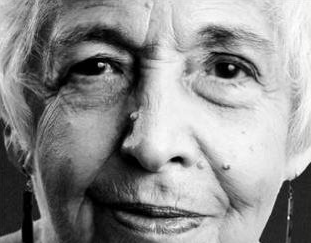Daily catch-up: The Witchfinder General, by Joyce Gould
A memoir of a Labour Party loyalist whose life was dedicated to throwing out Trotskyist entryists and helping to make the party fit to govern


The Queen is "not supportive" of proportional representation, I reported on Sunday. The revelation came from Joyce Gould, Baroness Gould of Potternewton, whose memoir, The Witchfinder General, I had been reading. She had discussed electoral reform with the Queen when they met in 1997, when Lady Gould was about to join Roy Jenkins's Commission on the subject.
Lady Gould was called the "witchfinder general" because she led the fight – which they called a witch hunt – against Militant entryists in the 1980s as the Labour Party's director of organisation. Her book is a wonderful account of a life dedicated to the party.
She grew up in Leeds, where she went out with Harry Patterson, later to be known as Jack Higgins, the author of The Eagle Has Landed. She married Kevin Gould, who ran the football team for the Jewish youth club.
They were both Labour activists and she eventually became a paid party official. She attended her first meeting of the National Executive Committee in September 1975, when Harold Wilson was Prime Minister:
Even though I was aware of the serious political differences between the members of the executive, I had no idea of the way they behaved to each other. Any illusion I had that there was a degree of courtesy and comradeship was soon shattered... I had never experienced this level of antagonism, or the degree of bitterness and vitriol that almost bordered on hatred. The petty comments and unfriendly banter seemed on occasions to descend into madness.
She was involved in endless disputes over the selection of parliamentary candidates. In Wallasey in 1992, a candidate alleged to be associated with Socialist Organiser was excluded from the shortlist and Angela Eagle was chosen, becoming an MP in the general election.
Private Eye claimed that Gould had influenced the selection because she was Eagle's aunt, which she is not, a relationship that had supposedly been concealed from members at the selection meeting. The Eye had to pay £3,000 each to Gould and Eagle. "I bought a new and comfortable sofa which sadly three years later I lost in a flood in my Camberwell flat."
While Neil Kinnock was leader, she worked closely with Charles Clarke, Kinnock's chief of staff. He "could at times be a little arrogant and pompous, but we worked amiably together". And she was grateful to Clarke for saving her holiday in Cuba, when she and her daughter Jeannette arrived to find their hotel was a dump – as a former student politician he had contacts in the Cuban Communist Party.
She organised party conferences and was responsible, among other things, for security:
On one occasion a disturbance was created when it was discovered that a man in a wheelchair had a gun under his blankets. It turned out to be a dummy gun. He had got into conference on a false visitor's ticket that Tony Benn had given him. Tony was sympathetic to the story he told and somehow got him a pass. Fortunately no harm was done.
Gould was of the left herself – she was, for example, a supporter of unilateral nuclear disarmament – but says that the conduct of the left's heroes, such as Benn and Dennis Skinner, lost her respect.
Now the party has to go through it all again. She was opposed to Ed Miliband's plan to give registered supporters the right to vote for the leader of the party for £3: "I do not think I was wrong when I argued that this decision mean we could again be faced with the problem of entryism and division."
Gould's is one of a number of recent books that cover the battle to save the Labour Party from the hard left in the 1980s. Two others are being reissued: Militant, Michael Crick's 1984 book, and Hammer of the Left, the 2003 memoir of John Golding, the organiser of the Labour right. Crick's was one of the formative books of my political life. I learned two things from it. One was that the Militant tendency was not just a group of supporters of a newspaper but a Trotskyist party called the Revolutionary Socialist League. The other was that it was upper-case M and lower-case t.
Join our commenting forum
Join thought-provoking conversations, follow other Independent readers and see their replies
Comments
Bookmark popover
Removed from bookmarks